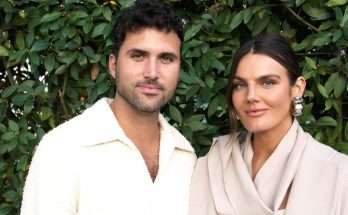
There’s a famous line from legendary football coach Vince Lombardi that goes, “Winners never quit, and quitters never win.”
But as a former professional poker player who has won more than $4 million in poker tournaments, I’ve found that during times of high uncertainty, the opposite may be closer to the truth. Quitters often win, and winners often quit.
How quitting can help us make better decisions
In poker, players are constantly dealing with uncertainty, because they rarely have all the facts they need to make a perfect choice. As they learn more, however, new information may make them want to change their minds.
And a good way to change their minds is to quit. That brings us to the two rules of being a good quitter.
- If you are stuck deciding between two options, you should choose the one that is easier to quit. The option to quit gives you the flexibility you need to successfully react to new information.
- When it turns out that your initial choice wasn’t a good one, don’t stick it out simply because you chose it. Just quit.
With a raging pandemic, there has never been a more uncertain time in recent history than right now.
If your child’s school offers an in-person option, should you take it? Business owners must decide whether to reduce salaries or lay employees off. Investors are faced with decisions about how to manage their portfolios.
Because of the rapidly changing information landscape, no matter what choice you make, it is more likely that, after you decide, you’ll learn something new that will make you wish you had chosen differently.
As a result, you may get sucked into an endless loop of analysis paralysis, taking extra time deciding or feeling unable to make any significant decisions at all.
The problem, of course, is that there is no such thing as not deciding. A decision to “wait and see” while you gather more information is an active decision to stick with the status quo. And a decision to defer any changes to the status quo is a decision to stay the strategic course you were already on.
You can’t not decide. But you can quit.
So how can you become a better quitter?
1. Take into account the cost of quitting any options that you are considering in advance of choosing among them.
This way, you can prioritize options that make it easier to change your mind later.
A business owner exploring options to preserve cash, for example, would prefer reducing salaries or furloughing employees, which would incur a smaller cost to quit than laying them off.
If you reduce the salary of a valued employee, then when you business starts to have a rosier outlook, you can easily reinstate their pre-pandemic compensation.
If you lay that same employee off, however, they may not be available if and when you’d like to rehire them. That means you’ll have to bear the attendant recruitment costs and the uncertainty that comes with a new hire.
2. Make sure you actually quit when you should.
Cognitive science shows that we are surprisingly bad at quitting when the time is right. But establishing the ways the future might unfold that would make you want to change your mind increases the chances you’ll pay attention to those signals and quit.
If your school district is choosing an in-person learning option for your child and infections are low in your area, for example, you might choose to take that option.
When you make that decision, clarify in advance the circumstances under which you would pivot back to distance learning. How much would infections have to rise for you to change your mind? What new information about the longer term effects of Covid-19 on children would make in-person learning no longer worth the risk?
When it comes to quitting, clear signposts will help you actually follow through.
There is more than one way to quit
The most obvious way to quit is to just reverse your decision, abandoning the course you’re on (e.g., quitting a job, breaking off a relationship). This is what Jeff Bezos and Richard Branson mean by “two-way door decisions,” where you can walk back through the door you came through.
But you can also quit by offsetting your decision. You can still undo decisions that aren’t “quittable” if there will be some option available in the future that will offset the downside effects of your initial choice.
Imagine you bought a stock that you were not allowed to sell. If you later decided you didn’t like your position, you could find another stock that was negatively correlated with the first to neutralize your position.
Choosing an option in parallel that will mitigate your losses if things don’t work out as you had hoped. Options that have offsets available offer a way to change your mind in the future, even if you can’t quit them in the more traditional sense.
Of course, you’re going to want to stick to some things. It’s hard to succeed at anything if you don’t have grit and “stick-to-itiveness.” But being “quitty” allows you to make better choices about when to be gritty.
Annie Duke is a decision strategist and bestselling author of “How to Decide: Simple Tools for Making Better Choices” and “Thinking in Bets.” As a former professional poker player, Annie won more than $4 million in tournament poker before retiring from the game in 2012. Follow her on Twitter @AnnieDuke.
Don’t miss:


